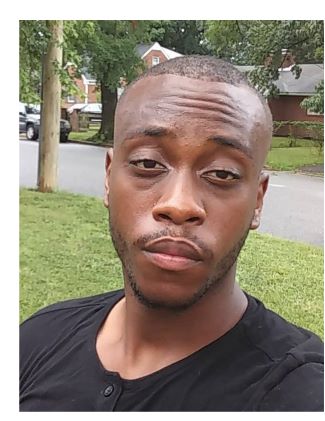
Protesting is fine, but voting is the way to bring about change, a UMES senior says
Tuesday, June 16, 2020
By Stephen Ayres
The living room is almost a sacred place in my household, a place where I received wisdom and knowledge beyond my years – not only when I was a child but even today.
I realized my parents became these pillars of wisdom when I started to understand the world around me. They brought a different life experience than most of my peers’ parents, who would’ve been younger by more than a decade.
The living room and its soft couch bring back a lot of memories over the years, but one sticks out above the others. My father once again recently called me into the living room and told me to sit down across from him. I already knew what he was going to say.
George Floyd would be a name that is seared into my memory along with the horrifying video of his life being snuffed out of him. The conversation with my father took a different turn this time; he spoke about his experiences as child growing up in the ’60s, when segregation was commonplace in America.
It wasn’t the first time my father had told me about his childhood growing up in Prince George’s County, Md. For some reason, this time felt very different. News of George Floyd’s death and my father’s stories were disturbingly connected even though they took place a half-century apart.
My father recalls being chased as a child by fully grown white men, who were intent to cause harm. However, my father along with his friends hid in the woods as they heard “Nigger” being shouted as the men continued to look for them.
I was left deeply troubled by our conversation because in my mind I asked myself: “How much progress did the civil rights movement really make? Progress if any, is wonderful in of itself. But the fact that the Minneapolis policeman felt all too comfortable kneeling on George Floyd’s windpipe, gave me an uneasy feeling about law enforcement officers who are supposed to serve and protect.
It seems the only difference between the men who chased my father as a child and the men who continue to abuse their authority today is just a uniform. That apparently shields them from being held accountable for acting out the same tendencies of racists back in the ’60s and even before.
Unlike my father’s generation, many of my peers at this moment are hesitant at the thought of trusting government to make changes.
Who could blame them? If many of my peers listened to the stories of my father, who has been alive throughout many presidencies, both Democrat and Republican and yet an incident like George Floyd can still happen today, why would voting even matter?
The only answer I can give is to recall how politics is used to change laws, and baby boomers like my parents realize this. The Civil Rights movement wouldn’t have gotten far without politicians making critical decisions with just a stroke of a pen.
My peers may not like the answer, but it is the reality of the country we live in. Protests are important ways to express outrage. However going to the polls to hold those we vote into office accountable sends an even stronger message.
After the dust has settled, will more incidents like George Floyd happen? Hopefully not but it’s up to us to hold politicians to their word. That is what my parents constantly emphasized to me, in that sacred living room.
Stephen Ayres is a senior from District Heights in Prince George’s County majoring in English at the University of Maryland Eastern Shore. He was invited to share his perspective on the current national debate about social justice issues in the news.

